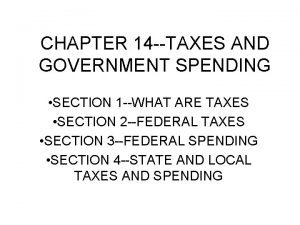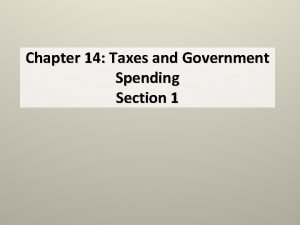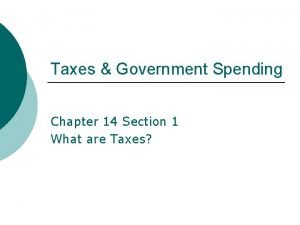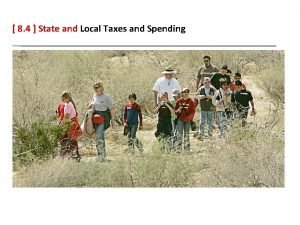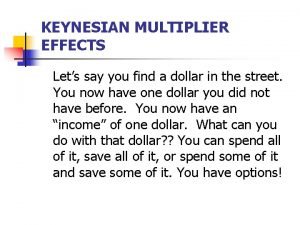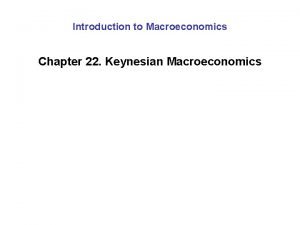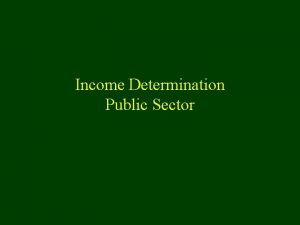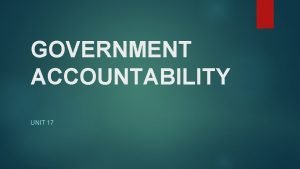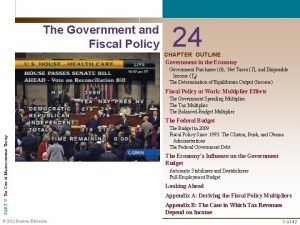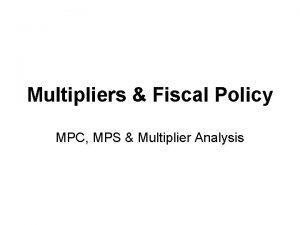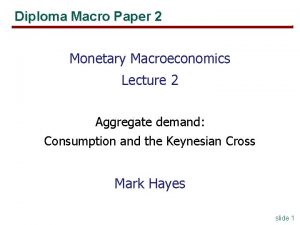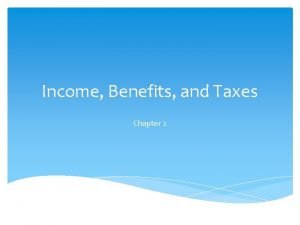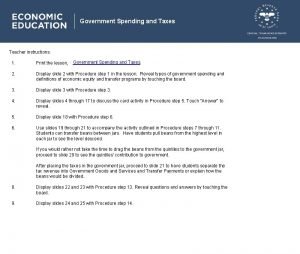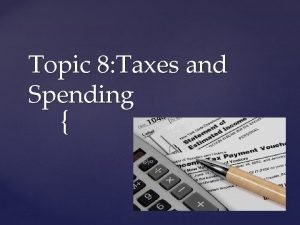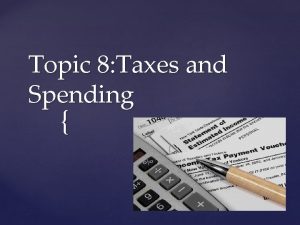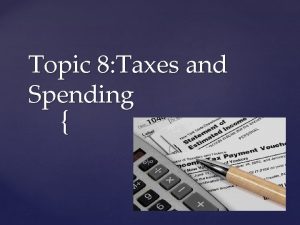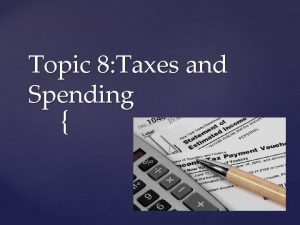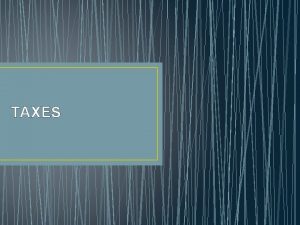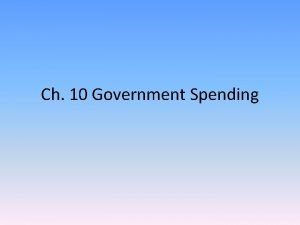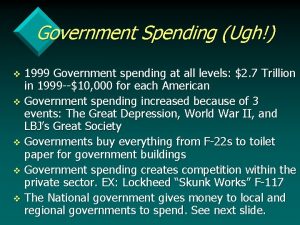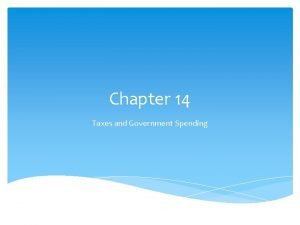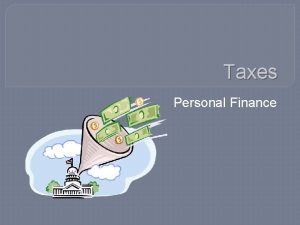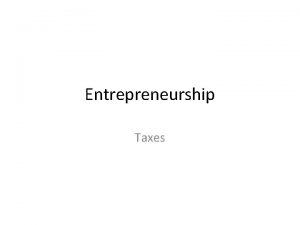Chapter 14 Taxes and Government Spending Funding Government













- Slides: 13

Chapter 14: “Taxes and Government Spending”

Funding Government Programs n Citizens of the United States authorize the government, through the Constitution and elected officials, to raise money through taxes n Taxation is the primary way that the government collects money (raises revenue) n Without revenue, or income from taxes, government would not be able to provide goods and services n

The Constitution The Power to Tax n Article 1, Section 8, Clause 1 of the Constitution grants Congress the power to tax… n The Sixteenth Amendment gives Congress the power to levy an income tax Limits on the Power to Tax n The power to tax is also limited through the Constitution: n n n The purpose of the tax must be for “the common defense and general welfare” Federal taxes must be the same in every state The government may not tax exports

Where to get taxes n A tax base is the income, property, good, or service that is subject to a tax…

Types of Tax Schemes n Proportional Taxes n A proportional tax is a tax for which the percentage of income paid in taxes remains the same for all income levels: n A. KA. Flat Tax n e. g. Social Security up to $100 k - some Eastern European countries, some state

Types of Tax Schemes (cont. ) n Progressive Taxes n A progressive tax is a tax for which the percent of income paid in taxes increases as income increases n e. g. US federal income tax

Types of Tax Schemes (cont. ) n Regressive Taxes n A regressive tax is a tax for which the percentage of income paid in taxes decreases as income increases n e. g. Sales tax, gas tax

Is there a good tax? n A good tax has the following characteristics: n Simplicity n n Economy n n It should be clear to the taxpayer when the tax is due, how much is due, and how it should be paid. Equity n n Government administrators should be able to collect taxes without spending too much time or money. Certainty n n Tax laws should be simple and easily understood. The tax system should be fair, so that no one bears too much or too little of the tax burden. If you like this stuff… n http: //www. amazon. com/Taxing-Ourselves-Citizens. Debate-Reform/dp/0262692082

Who Bears the Burden of a Tax? n To fully evaluate fairness of a tax, it’s important to think about who bears the burden of it. The incidence of a tax is the final burden of the tax. n REMEMBER: If demand is inelastic, a tax will increase the price of a good and consumers will bear a large burden of the tax. If demand is elastic, the opposite is true…

Tax Burdens Elasticities of Demand Tax Effects Elastic Demand Inelastic Demand New supply with $. 50 tax Price Original supply i $1. 00 Price f $1. 40 Original supply $1. 10 $1. 00 g i Demand Lower quantity Quantity Higher quantity

Quick Review 1. The power to tax is granted by the United States Constitution to (a) the Treasury Department. (b) Congress. (c) the President. (d) the Supreme Court. 2. All of the following are characteristics of a good tax except (a) economy (b) certainty (c) revenue (d) equity


 Chapter 14: taxes and government spending section 1
Chapter 14: taxes and government spending section 1 Chapter 14 taxes and government spending
Chapter 14 taxes and government spending Chapter 14 taxes and government spending
Chapter 14 taxes and government spending State and local taxes and spending
State and local taxes and spending Income tax meaning
Income tax meaning Multiplier formula
Multiplier formula Government spending multiplier
Government spending multiplier What is government expenditure multiplier
What is government expenditure multiplier Answer
Answer Government spending multiplier formula
Government spending multiplier formula 24 chapter outline
24 chapter outline How to calculate mpc
How to calculate mpc Government spending multiplier
Government spending multiplier Chapter 2 income benefits and taxes
Chapter 2 income benefits and taxes
